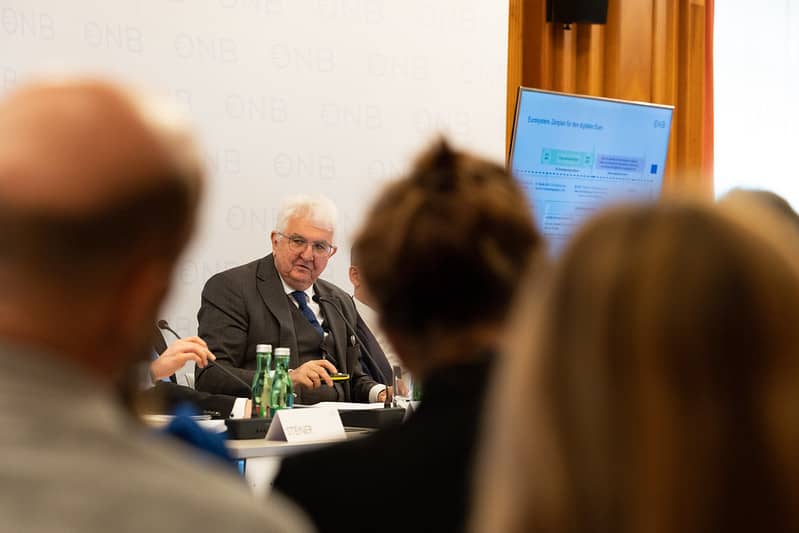ECB Speakers Say No Further Rate Cuts in the Diary
- Written by: Gary Howes

File image of Austria's National Bank Governor Robert Holzmann. Image: Oesterreichische Nationalbank.
Key members of the European Central Bank's Governing Council warned on Friday that no date has been set for another interest rate cut.
The fight against inflation has not yet been won, said Robert Holzmann, Austria's national bank (OeNB) governor, speaking at a press conference.
Holzmann was the only member of the Governing Council to vote against Thursday's ECB rate cut.
The central banker also pointed to recent stronger wage growth and weaker productivity growth in the Eurozone. He said he was surprised at new ECB forecasts showing inflation rising again, which led him to judge that the data available was not sufficient to decide on a cut.
The head of Germany's Bundesbank, Joachim Nagel, said on Friday that the ECB's decisions to reduce interest rates do not automatically mean it will deliver more.
In a press release accompanying the publication of the German Bundesbank’s updated semi-annual forecasts for Germany, Nagel said, "while the inflation rate in Germany is continuing to decline, the pace is subdued. We on the ECB Governing Council are not driving on auto-pilot when it comes to interest rate cuts."
The Bundesbank raised its HICP inflation forecasts for Germany to 2.8% for full-year 2024 from the 2.7% forecasted in December.
Isabel Schnabel - a key member of the Governing Council - said in a speech on Friday, "we cannot pre-commit to a particular rate path."
Schanel showed confidence the Eurozone can handle a new era in which interest rates are set higher than in the years preceeding the hiking cycle.
"The sharp increase in the ECB’s interest rates did not trigger a sustained rise in sovereign bond spreads between Member States," she notes, referencing fears that higher interest rates could create a repeat of the Eurozone financial crisis of the early 2010s that impacted 'periphery' nations.
She notes that, despite interest rates being hiked, the risk premia for European corporate bonds have fallen sharply since the beginning of monetary policy tightening, while equity markets are booming, likewise largely due to the falling risk premia.
Schnabel says higher interest rates also meant "foreign investors returned as yields in the euro area had become considerably more attractive."
Demand for Eurozone assets has been key to underpinning Euro exchange rates. By the same token, slashing interest rates could have the opposite effect on the exchange rate.
Recent developments at the ECB are, therefore, consistent with a firmer Euro in the coming weeks.



